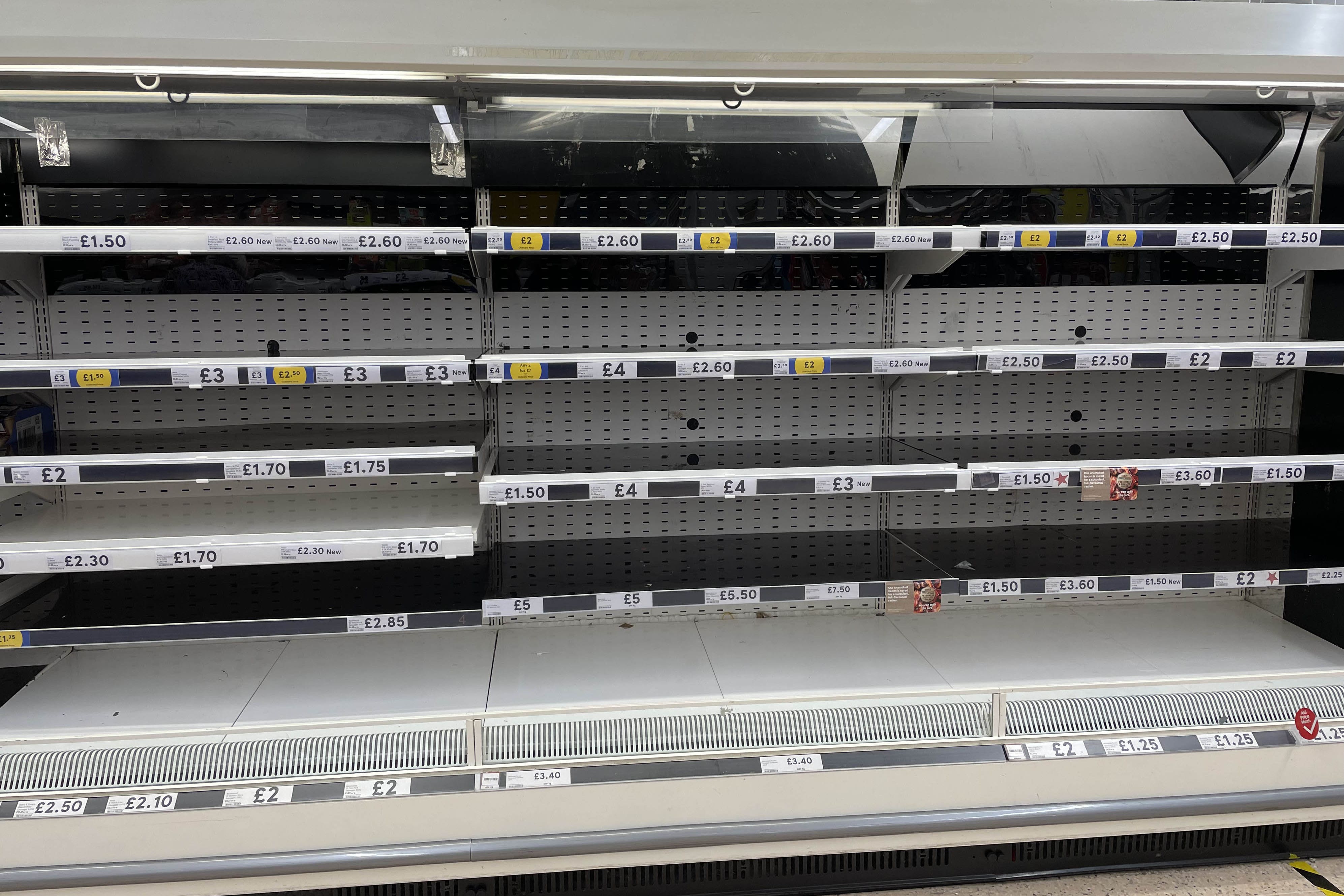Public expects food shortages and a general strike in 2023 – poll
An Ipsos poll found widespread economic pessimism about 2023.

Your support helps us to tell the story
From reproductive rights to climate change to Big Tech, The Independent is on the ground when the story is developing. Whether it's investigating the financials of Elon Musk's pro-Trump PAC or producing our latest documentary, 'The A Word', which shines a light on the American women fighting for reproductive rights, we know how important it is to parse out the facts from the messaging.
At such a critical moment in US history, we need reporters on the ground. Your donation allows us to keep sending journalists to speak to both sides of the story.
The Independent is trusted by Americans across the entire political spectrum. And unlike many other quality news outlets, we choose not to lock Americans out of our reporting and analysis with paywalls. We believe quality journalism should be available to everyone, paid for by those who can afford it.
Your support makes all the difference.Six in 10 people believe that the UK is likely to suffer food shortages in 2023, a poll has found.
Expectations of food shortages have shot up over the past year, according to a poll by Ipsos, with 60% saying shortages were likely next year.
When Ipsos asked the same question at the end of 2021, only 48% said they thought shortages were likely.
The figure reflects widespread pessimism in the poll of people’s predictions for 2023, carried out between December 9 and 12.
Some 46% said they thought average house prices would fall in their area, compared with only 20% a year earlier, while 57% said they thought it was unlikely that their personal finances would improve.
As the UK endured a month of strikes by nurses, railway workers, postal staff and others, nearly two-thirds of the 1,000 adults surveyed by Ipsos said they thought 2023 was likely to bring a general strike.
Environmental concerns were also shown up in the poll, with 60% of people saying they expected another heatwave with temperatures reaching 40C.
Gideon Skinner, head of political research at Ipsos, said: “Reflecting their experiences of 2022, economic and environmental concerns are high in Britons’ predictions for 2023, with most expecting another heatwave, more strikes, food shortages and little improvement in their own financial situation.
“Nor is there a great deal of hope that political stability will return (or that the war in Ukraine will end) – although Rishi Sunak is given more chance of surviving 2023 than Boris Johnson was of 2022.
After a year of political disruption, 50% of people said they thought a general election was likely to take place in 2023 while 46% said they thought Rishi Sunak was likely to be ousted as Prime Minister by the end of the year.
There was little expectation that Labour leader Sir Keir Starmer would take over, however, with only 27% of the public – and 35% of Labour voters – thinking it was likely he would be Prime Minister by the end of 2023.
Even fewer expected Boris Johnson to make a comeback, with just 16% saying the expected the former prime minister to return to Number 10.
In global affairs, concern about the emergence of a new, vaccine-resistant variant of Covid-19 has fallen significantly from 62% at the end of 2021 to 39% at the end of 2022.
Only a third of people said they thought the war in Ukraine was likely to end in 2023, while a quarter said they thought the conflict would see the detonation of a nuclear weapon.
There was much greater optimism about England’s footballing prospects, with 46% saying they thought the Lionesses would be victorious at the 2023 World Cup, hosted by Australia and New Zealand.
Some 41% of people said they thought former health secretary Matt Hancock would follow up his trip to the jungle with an appearance on Strictly Come Dancing.